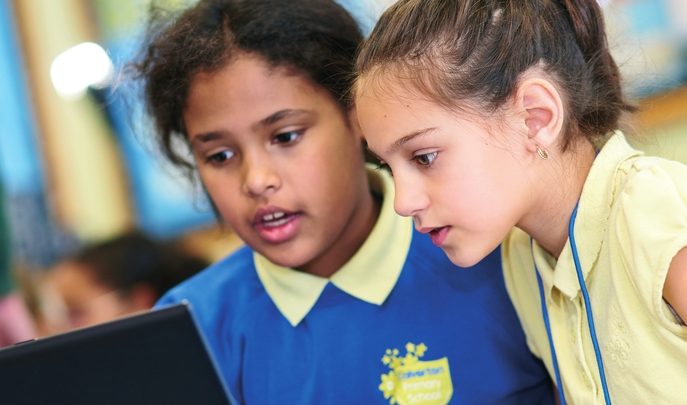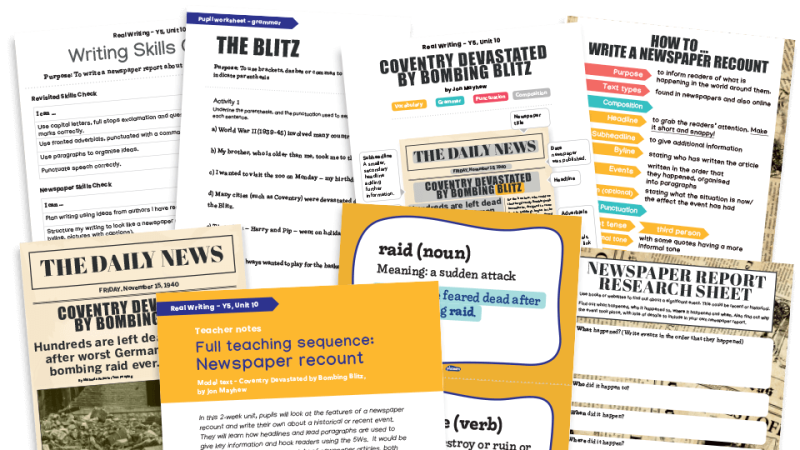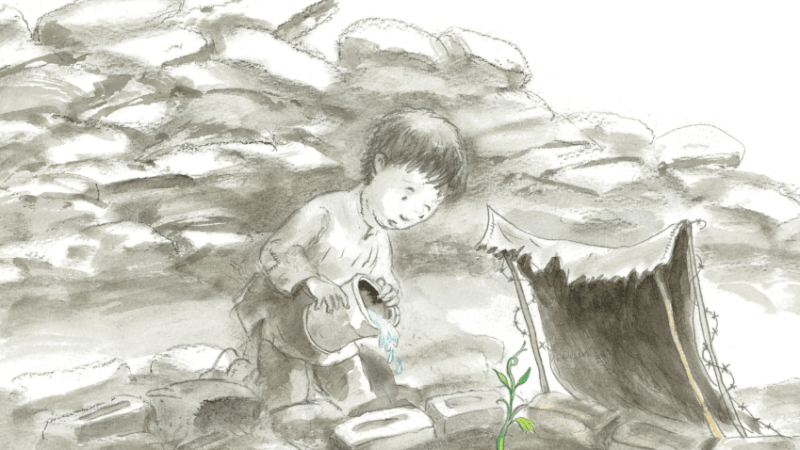“Thinking And Doing” – How A CPD Overhaul Helped Calverton Primary Boost Pupil Outcomes

What do philosophy, horticulture, cookery and filmmaking have in common? They’re all part of the Open Futures CPD programme, and they’re all expanding children’s horizons at Calverton Primary School, says Jacob Stow…
- by Jacob Stow

In her final term as head of Calverton Primary School in Newham, London, Shabana Khan has much to reflect on.
Her nine years in charge haven’t always been easy, she’s happy to admit, but having overcome the challenges set in her way, and assembled a staff team upon whom she can rely, she’s leaving a school and community far more united than they were when she arrived.
A big part of that success in recent times has revolved around a programme that is making a measurable difference to children’s learning in what is a catchment with historically high levels of disadvantage and disengagement with education, particularly among white British families. The programme in question is Open Futures, which provides teaching staff with CPD designed to develop children’s ability “To think and to do”. In practice, this means supporting enquiry skills (‘askit’, in Open Futures parlance), and then putting these to good use in three strands of hands-on learning, dubbed ‘growit’, ‘cookit’ and ‘filmit’.
Rather than all this existing in glorious isolation, the idea is that Open Futures can be a useful tool to deliver a school’s curriculum, resulting in increased motivation for pupils, a greater understanding of the world and an improvement in academic outcomes, too, across literacy, numeracy, science and technology. At Calverton this blueprint is very much in evidence, as is an enthusiasm for Open Futures from staff and children alike. “I asked staff how they would define the school, what it is that makes us special,” Shabana says. “It was unanimous – it’s Open Futures. It’s something we’re very proud of; it’s what makes us different.”
1. Askit
Askit equips children with the ability to explore options and to make decisions more effectively as part of a team. It engages them with their learning and, by offering them the chance to explore important new concepts, helps to improve thinking, empathy and critical judgement. “We’ve grown with Open Futures,” Shabana tells us. “I was lucky. The timing was right. We were recommended the programme by another school at a conference where they were sharing good practice. It was 2014, we had a new curriculum and levels had gone. So we created our own assessment system and went from there. The first step,” she explains, “was to roll out askit across the whole school.” Askit, as the name suggests, is all about enquiry-based learning. Developed from Philosophy for Children (P4C), it shares that approach’s ambition of developing pupils’ critical and collaborative thinking skills. At Calverton it’s a fixture on the timetable, delivered in discrete sessions, although the skills children acquire during those sessions are used far more widely. “Enquiry-based learning is about asking more questions, higher-order questions – and about there not being a fixed answer. It’s about the children bouncing ideas off each other, giving opinions and justifying them,” Shabana says of the strand in practice. “Today a lot of the projects children work on here are open-ended – they’re not being spoon-fed, or told what they’re learning. They’re setting the agenda of discussions, and we don’t know what the answers will be.
‘They’re given a safe environment in which to ask questions and talk about their thoughts and feelings, and they discuss some really deep things – even ‘What is life all about?’” In one askit session, held on the day Teach Primary visits Calverton, children are choosing what they would like to debate around the subject of technology. Suggestions are submitted to the teacher – ‘Why do we need technology?’, ‘Is technology good or bad?’ and more – and then a vote is held to decide on a winner. The former is selected and a lively discussion ensues.
The impact this type of learning is having is felt long after the sessions end: “We were doing a reading group a couple of weeks ago, and I asked for a boy’s opinion on something,” says Year 5 teacher Mags Phelan. “He said, ‘Actually, if I may, can I challenge you on that?’ This was a nine-year-old who normally just wants to charge around playing football. Askit is becoming part and parcel of how they operate in and out of school.”
2. Growit
Growit helps children to learn about growing and harvesting their own fruit and vegetables, acquire new skills and develop their knowledge of literacy, numeracy and science. “I was very conscious that Open Futures was something new, and that it was more work for teachers who already had a full timetable,” Shabana says. “So we decided to pilot each of the three hands-on strands in a phase. That gave us a chance to identify any issues, and also see what worked well. We started with filmit in Key Stage 2, cookit in Key Stage 1 and growit in the early years.” Besides giving children an appreciation for plant life, fruit and veg, and the turning of the seasons, growit, which is delivered in partnership with the Royal Horticultural Society, promotes healthy lifestyles and has become an integral part of Calverton’s science curriculum.
It is also supporting the development of many other important skills. From its early years roots, it has overcome a slow start – “because it’s cold outside and things haven’t always grown!” Shabana explains – to feature across the phases. During our visit we observed a group of Reception children outside planting bulbs in a raised bed while their teacher offers guidance, repeating key words which the children echo, building their vocabulary. Later, in a growit-focused lesson, we see meaningful science in action, in the form of a seed-growing project that children are working on with British astronaut Tim Peake. Pupils have planted and nurtured two sets of rocket seeds – one that has spent time on the International Space Station and another that has never left terra firma.
“We need to decide which we think is which once the seeds have grown,” one of the budding scientists explains. “We think the seeds that have been in space might not grow as healthily as the ones that haven’t because they’ve been up in microgravity.”
3. Cookit
Cookit gives children the opportunity of really understanding where their food comes from and how it relates to who they are, both in terms of their physical development and their wellbeing. “We did have to buy in a lot of equipment, which we weren’t necessarily expecting,” admits Shabana of the school’s efforts to get the programme up and running, “but we started small to make sure we weren’t paying for more than we needed. We also chose to create dedicated areas for growit, filmit and cookit.” Open Futures aims to support teachers in unlocking the cross-curricular benefits of cooking, and staff at Calverton haven’t had to wait long for them to appear. Like growit, cookit plays an important role in the school’s science curriculum: every class has a scheduled cooking session each half term, with children accessing a kitchen area in small groups.
Again, the strand has proven a useful tool for boosting children’s communication and engagement. “We have a lot of children who don’t speak English when they come to us and cookit has become a really good way to get those children to repeat words back, and to give things a go, whereas in class they might be a bit more reluctant,” says Michelle Brunt, Early Years Coordinator. But its influence is stretching beyond the classroom too, to play a vital role in parental engagement. “Open Futures doesn’t exclude anyone,” Shabana stresses, “so it’s great for making contact with hard-to-reach families. We’ve had some particularly successful cooking projects, especially where we’ve invited in the parents and targeted certain families – perhaps those who weren’t cooking at home. The parents were quite nervous at first, but the feedback has been great.” “We’ve even had parents come in and say that their children have led little cooking sessions at home,” adds Mags. Back at school, cookit is also seen as a tool for building independence, right from the early years. “It’s great for giving children ownership and for developing maturity,” Shabana says. “Snack time is part of our curriculum in the early years. Children create their own snacks every day – everything from crumpets to hummus. They use knives from an early age. The children love it and the parents have really embraced it as well. It all ties into the EYFS, too.”
4. Filmit
Children work in teams to explore, shape and articulate their ideas through the process of making films. Filmit helps them to communicate with each other, to see the experiences of children in other Open Futures schools and, most importantly, to share their own. Embracing the Open Futures programme has been made easier for Calverton because of the support there is available to help staff put it into practice. “The training was provided for us, for teachers and TAs,” Shabana tells us. “Open Futures were very supportive. We were given a link person, Bob Pavard, a former headteacher, who would come into our meetings, talk through ideas with us and make suggestions. And there were quality people doing the training, specialists – a media professional running the filmit course, for instance.” Filmit was initially intended to support Open Futures’ growit and cookit strands, but has become a core part of the programme in its own right over time. At Calverton it is ostensibly linked to the computing elements of the curriculum, but like the other strands, it has come to play a broader role in children’s education.
Thus, pupils might be found creating Scratch animations in their science lessons, capturing and editing a recording of the annual Year 6 production or using a green screen to create images of themselves alongside celebrities to sell during Enterprise Week. “We’ve used a lot of filmit things, like Photo Story and Audacity, in our foundation subjects,” Mags says, reflecting on the strand’s impact. “Using technology comes naturally to children – it gives them more confidence in sharing their learning.
If we did a topic and at the end asked the children to produce two pages of writing telling us everything they knew on the subject, we’d lose half the class in an instant. But if you give them a computer, a camera, an iPad and tell them you want them to show you their learning, they embrace it. We can still assess their work, regardless of whether it’s a webcast or on a sheet of paper.” “You don’t lose anything by not having two pages of writing,” Michelle agrees, “and I think the children’s learning has deepened because they’re so engaged.” “And it’s had a particular impact on those we consider hard-to-reach,” Shabana concludes. “I’ve seen the difference; they thrive on technology, they want to use it to share their ideas.”
Learning together
The Open Futures programme is uniting staff and children at Calverton, spanning the year groups, but it’s just one of several strategies designed to do this.
“This was a very fragmented school when I arrived; the different phases were all doing their own things,” Shabana explains. “We introduced lots of whole-school events and celebrations, celebrating diversity. Then we decided we would have whole-school topics, running from nursery up to Year 6. We chose six themes that we felt our children needed to focus on: Rule Britannia – be proud to be British; London Life, because I think London is the most amazing city in the world; Age of Technology; Health and Growth; the Global Community; and the World of Work.
‘Children cover these topics each year, one per half term, so they build on the skills they’ve learnt previously. It provides continuity. This is a very deprived area – we have children coming from families that haven’t worked for three or four generations, so it’s really important to give them roles models and aspirations.”
Meet the staff
 Shabana Khan, Headteacher
“We had a community day last year where we opened up the school and the four strands were all happening. We invited parents, counsellors, people from other schools to come in; the community attended and planted seeds, cooked food, and filmed against a green screen. These are all useful life skills, and the parents are learning from their children.”
Shabana Khan, Headteacher
“We had a community day last year where we opened up the school and the four strands were all happening. We invited parents, counsellors, people from other schools to come in; the community attended and planted seeds, cooked food, and filmed against a green screen. These are all useful life skills, and the parents are learning from their children.”
 Mags Phelan, Year 5 teacher
“We plan next steps for the Open Futures strands, and these feed in to the rest of the curriculum. Cookit and growit will tick lots of boxes for design technology and science, for example. Askit feeds into RE, and filmit and computing go together. So Open Futures has a knock on effect on the foundation subjects.”
Mags Phelan, Year 5 teacher
“We plan next steps for the Open Futures strands, and these feed in to the rest of the curriculum. Cookit and growit will tick lots of boxes for design technology and science, for example. Askit feeds into RE, and filmit and computing go together. So Open Futures has a knock on effect on the foundation subjects.”
 Nabila Rahman, Year 5 Teacher
“We link P4C in with our topic areas, geography, history, or whatever. But we also try to get the older children to take more ownership of it. We’re asking them to bring in ideas they want to talk about – they want to discuss things like banning school uniform, and whether they should be allowed mobile phones in schools, things that are relevant to them.”
Nabila Rahman, Year 5 Teacher
“We link P4C in with our topic areas, geography, history, or whatever. But we also try to get the older children to take more ownership of it. We’re asking them to bring in ideas they want to talk about – they want to discuss things like banning school uniform, and whether they should be allowed mobile phones in schools, things that are relevant to them.”
 Michelle Brunt, EYFS Coordinator
“We’ll start with a story book, then ask a question about it. Afterwards the children go and write about what we’ve discussed. I’ve got four-year-olds writing things like ‘I disagree with… because’ or ‘I agree with this. However, I understand…’, and it’s because they enjoy the askit sessions so much they’re choosing to write in their free-flow time.”
Michelle Brunt, EYFS Coordinator
“We’ll start with a story book, then ask a question about it. Afterwards the children go and write about what we’ve discussed. I’ve got four-year-olds writing things like ‘I disagree with… because’ or ‘I agree with this. However, I understand…’, and it’s because they enjoy the askit sessions so much they’re choosing to write in their free-flow time.”
Pupil Voice
Eisel, Year 4 “In cookit we go out and cook things, then taste them. In Year 3 we did smoothies, and we just did tuppenny pottage, which is a Tudor soup; it’s all they really ate. I tried it, but there was too much potato…”
Teetus, Year 4 For askit we get into groups and make up a questions. Then we vote which question we want to discuss as a class. We put up our thumbs when we want to contribute. Then we have to give a reason for what we think.”
Talowani, Year 5 “I’m going to a tennis competition. I’m confident because I’m really good, and sir said there wouldn’t be anyone as good as me. I’m not really scared, and you shouldn’t be because then it will just make it harder for you to play.”
Brittany, Year 5 “It’s okay to disagree. You’re debating all the time, and you get lots of different opinions. Askit helps us understand that everyone has their own opinion, and you can’t always change that. If you’re learning in a fun way, it helps you to understand better.”
For more information, visit www.calverton.newham.sch.uk











